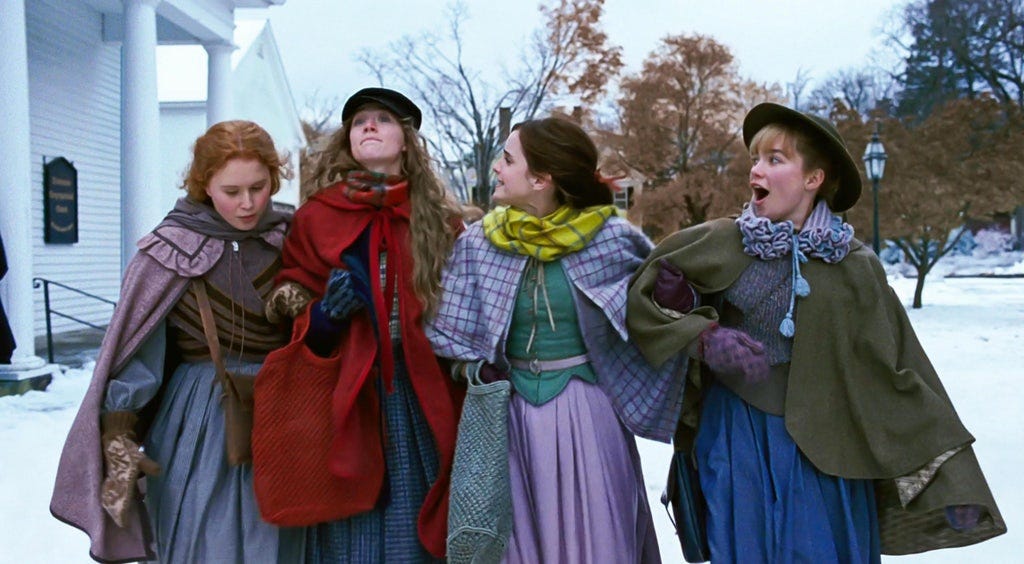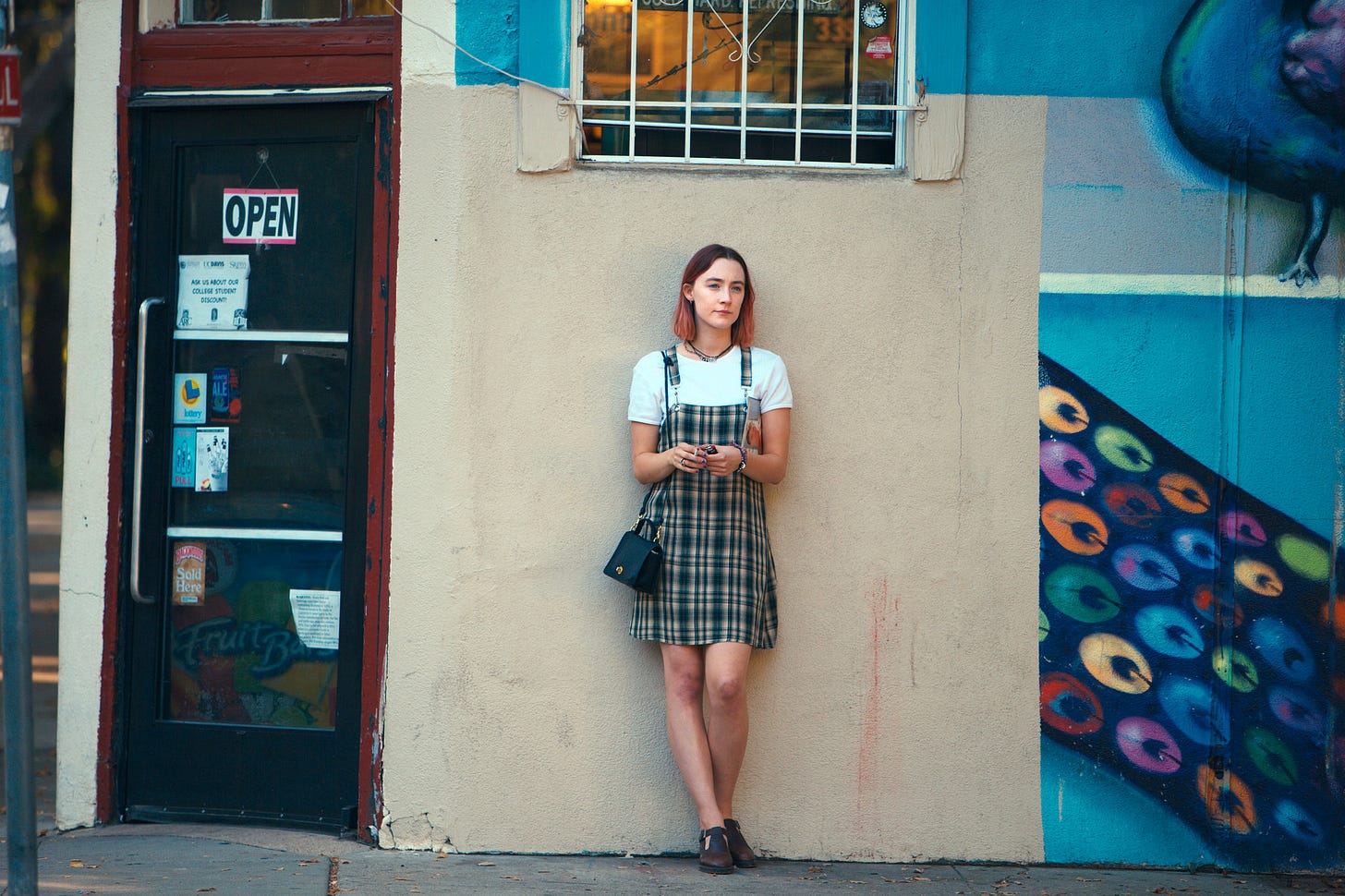peeking behind the curtain: girlhood in film and the trans experience
I am not a girl. Well, I kind of am, and I kind of am not. I used to be one, and now I identify as something different. That’s how I identify, truly: as someone who used to be a girl and is now a nonbinary person. I don’t really subscribe to the idea that I have always been a nonbinary person and just didn’t know it, especially because I didn’t know what “nonbinary” meant until a few short years ago; sorry, Lady Gaga, and everyone else who champions the phrase “born this way”; I was not born this way, I became this way after years of hand-wringing and obsessive reading and even a little frantic googling. It’s the modern way!
We use movies to tell us how to be, but we also use movies to recognize our own lives up there on the screen. As someone with a memory ravaged by both mental illness and a quarantine-enhanced dependency on marijuana, whenever I see something that reminds me of my adolescence onscreen, it feels like long-dormant parts of my brain are lighting up again, a twinkling Christmas tree made of neurons linked by memories of going-out tops. The only problem is, the movies that make me feel that way are all about girlhood. And I am not a girl (see above). Is this a problem? What do you do when the person you once were conflicts with the person you are now?
In many ways, girlhood is a country in which I used to live. I became used to its customs, learned how to speak its language, mastered its unusual dress code. Recently I rewatched The Bling Ring, Sofia Coppola’s movie about the LA teenagers who targeted and robbed celebrities’ homes, and I was struck by how much it reminded me of my own teenage years. No, I didn’t do coke and rob houses in high school and college, but I partook of all the other rituals shown in the film: rocking out to Kanye in the car; knowing the right things to say on a shopping trip; dancing at a club for the attention of men, which I both wanted and was terrified by.
Now I am, for the most part, exiled from the land of women, because I changed my name to Seth Elio and starting getting clipper cuts. And yet the world of men, to me, is complex and intimidating. There are only a few male coming-of-age films that I see myself in, and most of them are queer; Call Me By Your Name is the only major one that comes to mind. The works of Sofia Coppola and Greta Gerwig, on the other hand, are so evocative of my lived experience that rewatching them feels like returning to that country in which I lived so long ago. Show me Jo stubbornly writing by candlelight or Marie Antoinette reclining next to her Converse hi-tops and I will show you who I was when I was 16.
Now that I think of it, there is one male teenage character I see myself in, and that’s Seth Cohen from The O.C., one of my favorite shows. Seth is a teenager defined by his love for pop culture; his personality is impossibly tied up in his love for Death Cab For Cutie and Spider-Man and The Amazing Adventures of Kavalier & Clay. I was much the same when I was that age, burrowing deep into fictional worlds because they made more sense than the real one. Like Seth himself, I struggled with a superiority complex (based on my admittedly excellent taste in music and movies) balanced by an inferiority complex (based on all the pretty girls who didn’t want to talk to me).
Maybe Seth Cohen is acting as a cautionary tale here. Perhaps it’s unwise to put too much stock in film and TV; maybe the way that Lady Bird brings back vivid memories of dress shopping with my mom is just an interesting flashback, nothing more. Maybe the fact that Fiona Apple, Sleater-Kinney, and the genre of riot grrl still resonate deeply with me simply means that I have excellent taste in music. After all, if I am neither man nor woman, doesn’t that indicate that I am partially both? And that I am free to pick and choose how I want my life to be from both sides of the aisle, like selecting ingredients at a big, fabulous omelette bar?
I asked my close friend Mika, a trans woman, her thoughts on why she hates coming-of-age movies (we’ve argued passionately in the past about CMBYN and Lady Bird, both of which I love and she hates). Does it have something to do with being trans?, I asked her. Kind of, was her response. “Not because I don’t like to remember my adolescence but moreso because I don’t like when [coming-of-age movies] reinforce tropes that aren’t universal but pretend like they are.”
Maybe that’s the answer - we need a variety of coming-of-age movies that reflect the actual human experience, including transness, so trans people don’t need to cobble together their own crude kaleidoscopes of moments that resonate with them. In the meantime, I enjoy my peeks behind the curtain at girlhood. It doesn’t make me feel nostalgic, as I don’t particularly miss my teen years, but it does fill me with a sense of fondness. If girlhood was the country I used to live in, I’m content just to visit now.
Yesterday I was driving through Philly, singing along to a Patti Smith song I’ve always loved. My voice kept cracking as I sang, so I switched to a lower register, the deeper part of my voice that only appeared after several months on testosterone. Suddenly I was in perfect harmony with Patti, who was singing in the register I used to hit when I was a girl. The moment was almost too perfect for someone who writes for a living. After all, we may switch up the octave we use to sing, but the song remains the same.




thank you for this article !! i've been feeling this same way too and i've been conflicted with it for a while now bc it made me feel as though i was a imposter for identifying as nonbinary. it feels so nice to be seen this way<3
that last graf in insanely good wowooww